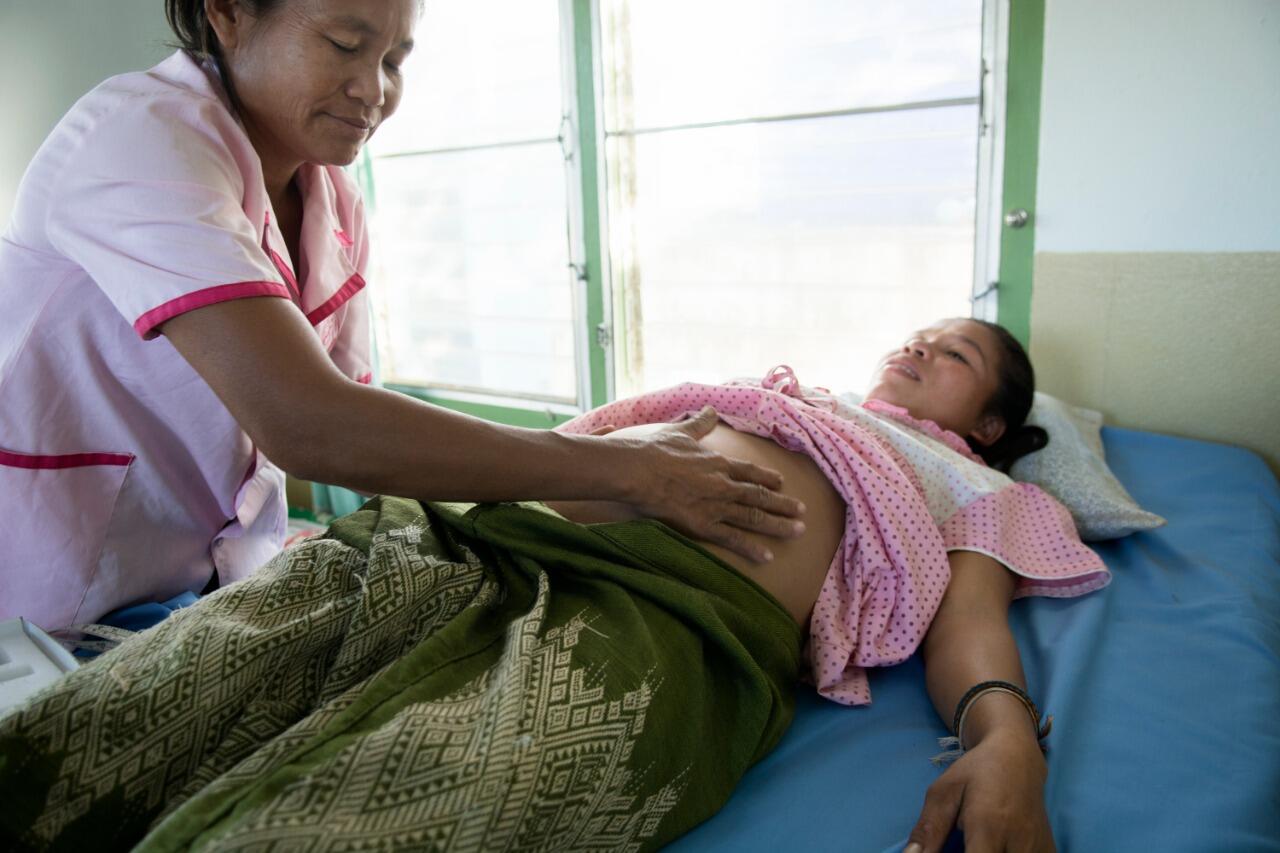Vientiane Capital, 15-16th October 2020 – The Ministry of Health led by Department of Health Professional Education has conducted several workshops with key technical staff to review the content of both the Scope of Midwifery Practice (2009) and the Clinical Standards of Midwifery Practice in Lao PDR (2009), with relevant partners. Different recommendations that resulted from these workshops undertaken earlier this year were taken into considerations and these two days were used to validate the contents with high level staff.
The Government of Laos has made a Commitment to the ICPD25 (International Conference on Population and Development 25) in 2019 that by 2030, it will end Maternal Mortality Ratio (MMR) through quality of care and the Reproductive, Maternal, Newborn, Child and Adolescent Health Strategy and policies and ensure provision of health services based on availability, affordability and high quality services. A new target was set, to increase the proportion of women delivering with trained Skilled Birth Attendance to 90 %. The latest figures (LSIS II, 2017) show that more than 35% of women still deliver without any skilled attendance. Quality midwifery services that gain the trust of the population are key to attaining the goals set at ICPD25.
With this key commitment heavily relying on a strong midwifery workforce, the Ministry of Health needs to ensure robust structures are in place to guide the Scope of Midwives’ Practice as well as their Clinical Practice. Hence this workshop set out to review the two documents from 2009 to ensure these are aligned with most up-to-date evidence and the realities of midwifery work in the Lao PDR.
Midwifery is one of the key pillars that reduces maternal and newborn mortality rates and improves the health and wellbeing of women and their children. Investment in strengthening the quality midwifery care gives rise to a huge return on maternal, adolescent and child health. Recent evidence showed that, 83% of all maternal death, stillbirths and newborn deaths could be averted with the full package of midwifery care including family planning. In order to ensure that all the reproductive aged women receive quality midwifery care, improving the educational standard of midwives is critical as well as producing enough numbers and ensuring a robust structure guides the provision of these services.
The workshop was Chaired by Dr Ponemek Dalaloy, president of the Health Professional Council and Madam Sengmany Khambounheung, Director of Department of Health Personnel Education with representation from UNFPA. It was well attended by representatives of the Public Health Schools, Nursing Schools and Training Centres, Hospitals, Health Professional Council, Nursing Council, Association of Obstetricians, Lao Association of Midwives and Government Departments relevant to the Midwifery profession who had worked tirelessly through several workshops to culminate in the two-day validation workshops.
The COVID-19 situation in Laos is telling us to be responsive to the needs of the population. We are seeing an increase of women accessing health facilities in Laos simply because COVID is preventing them from going to the neighbouring countries to give birth. At the Mother and Newborn Hospital in VTE alone, we have seen that the number of births have gone up from 5000 last year to already 7000 in 2020, and we are not yet at the end of the year. Therefore, we should use this opportunity to serve our women, improve the quality of care and try to keep them with us in the future.' said Professor Ponemek Dalaloy, President of the Health Professional Council, in his opening speech. The validation took two days, with full participation from educators, professional associations and government departments relevant to the Midwifery profession; who provided critical analysis and recommendations to improve the revision of the current documents defining and agreed on the midwifery scope of practice and clinical standards of midwifery practice in the Lao PDR.
UNFPA is the United Nations reproductive health and rights agency. It is the leading agency for delivering a world where every pregnancy is wanted, every childbirth is safe and every young person's potential is fulfilled. UNFPA promotes sexual and reproductive health and rights, particularly maternal health, in over 150 countries, as well as working to end harmful practices such as child marriage, and supporting population data collection and analysis.
For more information, please contact: Ms Siriphone Sakulku, SRH Programme Coordinator
Email: ssakulku@unfpa.org


